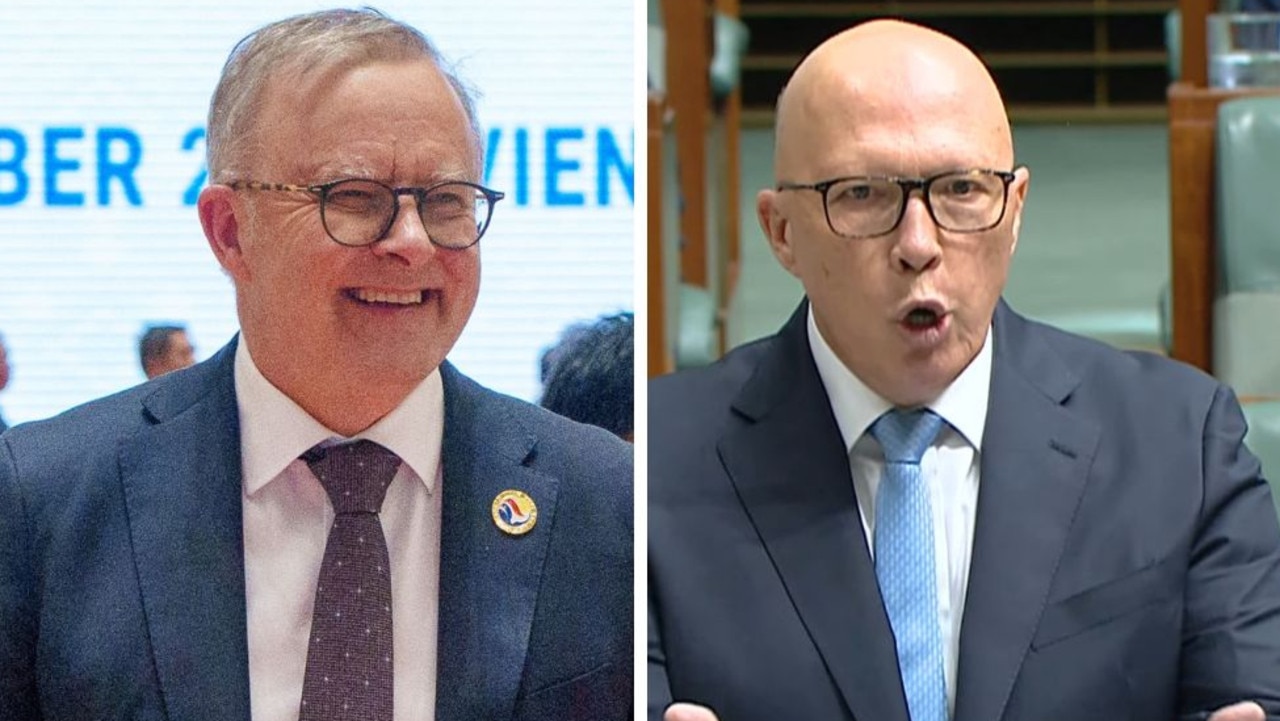Patrick Carlyon: Peng Shuai case a crossroads moment in China’s oppression
The plight of Chinese tennis player Peng Shuai provides the Western world an opportunity to lead an administrative boycott against China.
THE curious case of Peng Shuai, the tennis player who accused a senior Chinese politician of sexual assault, then disappeared for almost three weeks, offers unsurprising clues into the workings of a totalitarian regime.
Peng posted her claims on Weibo, the Chinese equivalent of Twitter. The official response was to argue that the post never happened.
Her lengthy allegations were deleted from the platform. Even the word “tennis” was censored.
Then, Peng went away.
Then, after international rumblings, Peng magically appeared in state-released footage in a restaurant.
Then, she had a video chat with International Olympic Committee president Thomas Bach.
Stunt best describes this exchange. It’s unclear how the call came about, given others have been unable to contact Peng. She seemed relaxed, apparently, as she asked for privacy. It remains whether goons lurked off-camera helped her to say the right things.
Fortunately, the Women’s Tennis Association jumped in. Unfortunately, this is uncommon for international sporting bodies, which traditionally place dollars above human rights.
WTA chief executive Steve Simon called for China to “end censorship against Peng”, in what was described as a bold move because it jeopardised nine WTA annual tournaments in China.

A Chinese foreign affairs spokesman Zhao Lijian has hoped that “certain people will cease malicious hyping, let alone politicisation” of the Peng issue.
But sport and politics do mix. They always have. History is kind to Australia’s then controversial decision to ditch cricket Tests with apartheid South Africa in 1971. Who wonders today if that was the right choice?
Or take China itself, which has a long (and successful) record of bribing other nations with sports grounds and the like so that those countries rescind their recognition of Taiwan.
Several Australian MPs are pushing for an administrative boycott of the Beijing Winter Olympics. Liberal Senator Concetta Fierravanti-Wells has neatly summed up the grab bag of concerns, telling a newspaper that China’s “bellicose and illegal actions in the South China Sea, ongoing human rights abuses, cyber attacks and its conduct in Hong Kong and Taiwan, demonstrate that Beijing is not a good international citizen”.
It follows suggestions that the UK and US are also entertaining a diplomatic boycott.
China’s malfeasance is beyond dispute. The previous US administration, in a move endorsed by Joe Biden’s spokespeople at the time, joined other countries in condemning the repression of the Uighurs in Xinjiang as “genocide”.
Russia’s Vladimir Putin is the only leader to accept an invitation to the Beijing Games. Australia, which has not enjoyed diplomatic ties with China since that country’s outbursts of bullying last year, seems unlikely to send government ministers.
How could we?
But we should go further. The Western world should.
Western officials should not go to Beijing, and nor should Western athletes. To do so offers tacit approval for China’s medieval mistreatment of its own people, as well as its belligerent approach to inflicting its influence abroad.
Bodies such as the IOC are unwilling to put the principled approach ahead of commercial expediency.
The IOC has brazenly pursued its own ends for generations, and never mind the barbarism and torture that it has chosen to ignore along the way.
Its cynical pragmatism has long defies its own charter about “peaceful society” and the “preservation of human dignity”.
Belatedly, the IOC is being held to account.
Criticism for its handling of Peng has transcended national borders. Human rights and sporting advocacy groups have been scathing. Global Athlete said the IOC was “complicit in ... malicious propaganda”.
A Human Rights Watch researcher said the IOC was “actively playing a role in the Chinese government’s enforced disappearance, coercion and propaganda machinery”.

The point here is China’s official willingness to terrorise and coerce. Details sometimes get hidden, but the China devil waves the pitchfork whenever confronted by calls for transparency. No country should bow to wholesale policies which conflict with decency and fairness.
Athletes who miss out on Beijing in a boycott could consider themselves drastically unlucky. Their desire to compete at the highest level is entirely justified.
But a collective willingness to turn up smacks of the kind of acquiescence which China demands of governments and traders.
“Do Sports Still Need China?” was the headline of a New York Times piece this week that thoroughly documented conflicts in soccer, basketball and tennis.
The article ended by emphasising how the China of 2008 – and the summer Olympics of Beijing – is not the same as the China of 13 years later.
Momentum built for a wholesale boycott of the Beijing Games, in response to testimonies of women in labour camps in Xinjiang, earlier this year.
It should be reignited by the plight of Peng, which stands as just another crossroads moment in China’s oppression.
The rest of the world has a choice – to apply the craven example of the IOC, or to call out China.
Let’s hope Australia heeds the words of Peng herself when she wrote: “Even if it’s just me, like an egg hitting a rock, or a moth to the flame, courting self-destruction, I’ll tell the truth ...”



